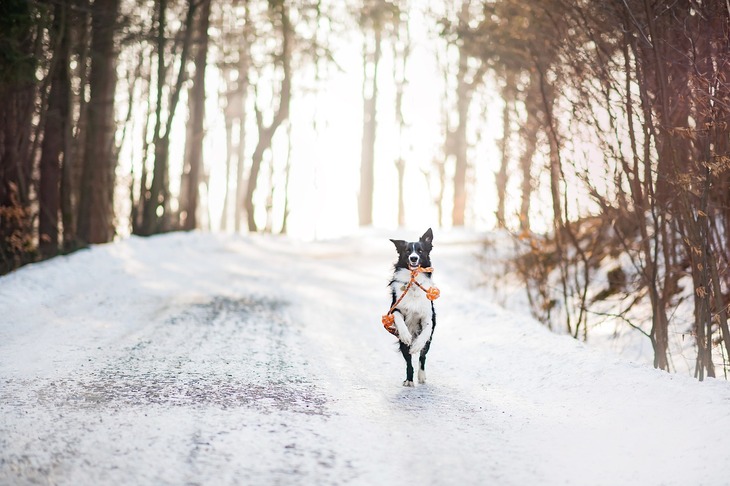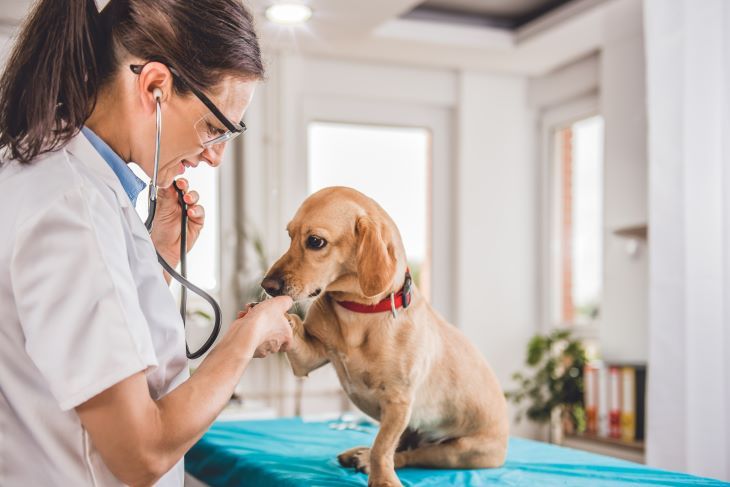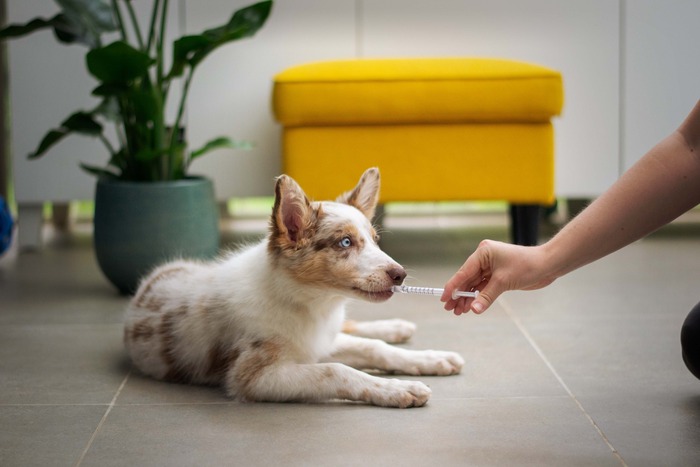Keeping Your Pets Healthy in Japan in Winter
We're in the midst of winter in Japan, a time when it is easy for people to get sick. What you might not realize is this is also the time of year when pets can have their own share of health problems.
So let's look at some health problems your pets could face during the winter, some ways to avoid those problems, and a few English-speaking vet options in Tokyo should you need to take your pet to the vet this winter.
Common Winter Health Concerns for Pets in Japan
Here are some common health problems pets may have in the wintertime in Japan.
Respiratory Issues: Cold air and dry conditions can irritate pets' respiratory tracts, particularly in breeds that are already prone to breathing difficulties, such as flat-faced breeds like Bulldogs, Pugs, and Persian cats. Signs of respiratory problems include coughing, wheezing, nasal discharge, and difficulty breathing. To help your pet avoid these problems, keep your home humidified and ensure your pet's sleeping area is warm. Avoid outdoor activities during extremely cold weather too.
Hypothermia: This can occur when a pet's body temperature drops below the normal range due to prolonged exposure to cold. Signs of hypothermia in pets include shivering, lethargy, pale gums, and in severe cases, loss of consciousness. Puppies, kittens, older pets, and those with thin fur or underlying health conditions are especially vulnerable. To protect your pets from hypothermia, do not let them stay outside in the cold for too long, especially in snow or wet conditions. Dry your pet thoroughly if it gets wet. Provide insulated bedding or heated pet beds if your home gets particularly cold at night.
Frostbite: Frostbite can affect pets' extremities, such as ears, tails, and paws, when they are exposed to cold for too long. Frostbite-damaged skin may look pale or gray and feel cold or hard to the touch. To avoid frostbite, do not take long walks in freezing temperatures, and ensure your pet is wearing appropriate clothing if needed.
Joint and Arthritis Pain: Cold weather can make joint stiffness and pain in pets with arthritis or other joint problems even worse. You might notice your pet limping, moving slowly, or avoiding activities like climbing stairs or jumping. To help your pets, provide a warm and soft sleeping area. Regular, low-impact exercise can help them stay mobile.
Dry Skin and Coat: Low humidity during winter can cause pets' skin to become dry and flaky, leading to itching or irritation. To prevent dryness, brush your pet regularly to distribute natural oils and remove dead skin. Use a humidifier in your home and consult your veterinarian about moisturizing products suitable for pets.
Urinary Tract Issues: Dehydration during winter is common because pets may drink less water when it's cold. This can increase the risk of urinary tract infections or bladder stones, particularly in cats. Keep your pets hydrated by leaving fresh, clean water in easily accessible locations. Adding wet food to your pet's diet can also help increase water intake.
Tips to Keep Your Pets Healthy
Here are some things you can easily do to give your pets a much better chance of staying healthy through the winter. You may not need to do some of these things if you live in an area of Japan where it doesn't snow, but it is still good to keep them in mind.
Create a Warm Environment: Ensure your pet's sleeping area is away from drafts, doors, or uninsulated floors. Use cozy bedding, such as fleece or thermal blankets. For outdoor pets, provide insulated shelters with raised flooring and straw for bedding. Always check that their water supply is not frozen.
Adjust Exercise Routines: On very cold days, keep outdoor walks short or play with your pet indoors.
Provide Proper Clothing: Short-haired or small-breed dogs may need sweaters or coats to stay warm outdoors. Booties can protect their paws from ice, snow, and road salt.
Protect Paws: After walks, wipe your pet's paws to remove ice, snow, and harmful de-icing chemicals. Consider applying a pet-safe paw balm for added protection and moisture.
Make Sure They Are Eating: Pets may need slightly more calories to maintain their body heat in winter, especially if they spend time outdoors. However, don't overfeed them! This can lead to obesity.
Keep Up with Grooming: Regular grooming helps maintain a healthy coat, which acts as insulation. Avoid shaving your pet's fur too short during winter, and keep their fur from getting tangled or matted.
Be Aware of Antifreeze: This is especially important if you live in a snowy part of Japan. Antifreeze is highly toxic to pets but has a sweet taste they can be attracted to. Use pet-safe antifreeze alternatives whenever possible.
Routine Health Checks: Regular vet visits are crucial, especially for senior pets or those with pre-existing conditions. Winter can exacerbate health issues, so consult your veterinarian for seasonal advice and adjustments to your pet's care routine.
Veterinary Clinics in Tokyo
In the unfortunate event your pet needs medical attention, or if you simply want to take them for a checkup in the winter, here are some vets in Tokyo with English support.
・Westcross Veterinary Hospital (Meguro, Tokyo)
This vet in Meguro provides medical care for dogs, cats, and ornamental fish. They provide a wide range of medical services, including general medical care, surgery, and diagnostic imaging. It also has specialized centers for cancer treatment and cardiovascular care, among others. On Friday afternoons, it offers appointment-based medical services.
【Examination Hours】
Mon, Tue, Thur, Fri, Sat:10:00-13:00, 16:00-19:00
Reservations are necessary on Friday afternoons.
Sun/Holidays:10:00-13:00
Westcross Veterinary Hospital Website
・Japan Animal Medical Center (Shibuya, Tokyo)
This hospital has separate waiting rooms and examination rooms for dogs, cats, and rabbits. Reservations by appointment are available from 9:00-20:00. The hospital also provides emergency and critical care services in its intensive care unit. They also offer a kennel (these are usually called "pet hotels" in Japan) and a grooming salon at the same location.
Emergency care is available 24/7, but there may be longer waiting times at night. The Extra charges apply for emergency care. Not all staff speak English, so it's best to call ahead. Filling out an English form on the website in advance is necessary.
【Examination Hours】
Non-Emergencies: 9:00-20:00
Closed for non-emergencies Wednesday afternoon & night.
Japan Animal Medical Center Website
・Daktari Animal Hospital (Tokyo Medical Center)
Daktari Animal Hospital provides medical services for an extensive range of pets including dogs, cats, exotic animals (such as rabbits, ferrets, hamsters, guinea pigs, etc.), birds (such as parakeets, finches, etc.), turtles, monkeys, squirrels, and more. They also provide emergency services 24 hours a day.
【Examination Hours】
Open every day except for December 30th-January 3rd.
10:00-12:00 (Last Appointment 11:30)
14:00-19:00 (Last Appointment 18:00)
Daktari Animal Hospital Website


























